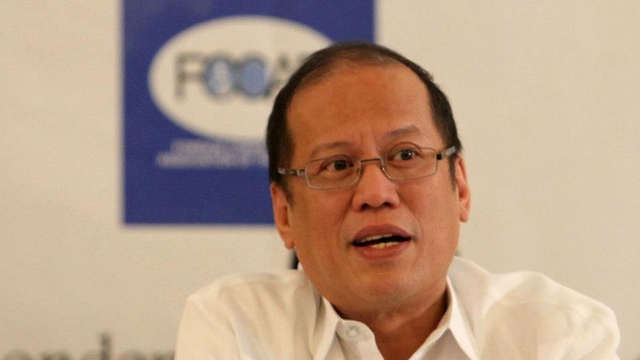SUMMARY
This is AI generated summarization, which may have errors. For context, always refer to the full article.

MANILA, Philippines – President Benigno Aquino III supports efforts to decriminalize libel in the Philippines.
Following criticism about the enactment of a law that imposes heavier penalties on online libel, Aquino said that he is actually in favor of removing criminal liability for libel.
Aquino made the statement at the Annual Presidential Forum of the Foreign Correspondents Association of the Philippines (FOCAP) on Wednesday, October 17. The forum was held at the Manila Hotel.
The President was asked if he wants to decriminalize libel in all forms of media as already done in major countries. In many nations overseas, only civil liability remains, meaning there is no penalty of imprisonment.
“I’m divided between sometimes the personal side and the public side. I fully subscribe to the idea of decriminalizing but not lessening the atmosphere to encourage irresponsibility in certain quarters,” Aquino said.
“The [often] cited example is when you’re in the movie house, you don’t have the freedom of speech to say there is a fire when there isn’t any so I think the discourse should also [recognize] the rights of all parties and not just that of the blogger,” Aquino said.
The statement is a step farther from the President’s earlier pronouncement on the need to retain the provision on online libel in the controversial Cybercrime Prevention Act of 2012.
He drew flak for signing the law, which journalists, bloggers, academics, human rights lawyers, and civil society groups criticized for supposedly violating freedom of speech, and giving government too much power over Internet users.
Human rights advocates pointed out that the law went against international and local efforts to decriminalize libel by imposing a penalty one degree higher for online libel compared to the sanctions in the Revised Penal Code. International groups like the United Nations are pushing for the decriminalization of libel.
The Supreme Court issued a 120-day temporary restraining order on the law’s implementation on October 9.
In Congress, several lawmakers have filed bills to decriminalize libel.
‘No exception for Internet users’
Aquino reiterated that he was faced with only two options: either vetoing the entire bill or signing it into law.
“So if I fail to sign the law, then the provisions on identity fraud, the porn, the other aspects sought to be penalized by this law would have been left again in limbo,” Aquino said.
Asked about his stand on online libel, Aquino said Internet users should not be spared of responsibility.
“My position is simple. When I read the law, and I read it I think, 3 times the proposed measure. It says there is an existing provision in the Revised Penal Code and libelous statements in print, the sanction should also be a libelous statement in the broadcast media, should also [be the same] if it is still the same statement existing on the net, should also be libelous.”
“There should not be an exemption based on what form it takes,” Aquino said.
Aquino explained that the cybercrime law took into consideration the existence of modern equipment that may be used to commit crime.
“Let me give you an example. We have an Anti-wiretapping Act crafted sometime in the late 60s. It defines the devices that you can use, how do you commit the crime. Unfortunately, most of the enumerated methods of wiretapping no longer exist.”
“And perhaps those of us younger in the room no longer know what a dictaphone is. These are types of items in the law but are no longer existing in reality. In fact, our jurisprudence says unless there is a physical wire you tap into, you can’t be guilty of wiretapping. We now have the Internet,” Aquino said.
The Supreme Court scheduled oral arguments on the anti-cybercrime law in January 2013. – Rappler.com
Add a comment
How does this make you feel?
There are no comments yet. Add your comment to start the conversation.